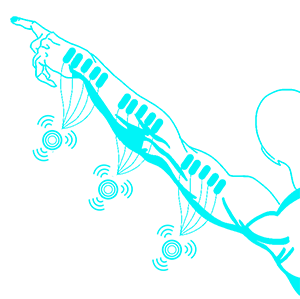
- PHYSICS
- a thermodynamic quantity representing the unavailability of a system’s thermal energy for conversion into mechanical work, often interpreted as the degree of disorder or randomness in the system.
- 2.
- lack of order or predictability; gradual decline into disorder.
The Harmonic Detection, Distinction, Annihilation, and Excretion, of Primary Cancers and Metastatic Cancerous Cells.
*Silicon based should refer to future patent.
1. Detection: Sonic based instrument with ability to track and detect abnormal cell growth within organ using non-evasive technique
2. Distinction: Instrument has the ability to distinguish abnormal growth cells from surrounding healthy cells
3. Annihilation: Instrument is able to annihilate – specifically_ abnormal cell growth with reduced collateral damage
4. Excretion: Future therapies are able to extract (excretion phase) reducing Metastasize of future abnormal growth.
Terms:
Metastasis is the spread of cancer to other locations in the body. The dispersed tumors are called metastatic tumors, while the original is called the primary tumor. Almost all cancers can metastasize. Different types of cancers tend to metastasize to particular organs, but overall the most common places for metastases to occur are the lungs, liver, brain and the bones. Most cancer deaths are due to cancer that has metastasized.
Metastasis is common in the late stages of cancer and it can occur via the blood or the lymphatic system or both. The typical steps in metastasis are local invasion, intravasation into the blood or lymph, circulation through the body, extravasation into the new tissue, proliferation and angiogenesis. [101]
a. unidirectional microphones
Second-order gradient (SOG) toroidal and unidirectional microphones derived using a first-order gradient sensor (FOG) and a reflecting plane are described. The FOG is positioned with its axis illustratively orthogonal to and suspended a few centimeters from a large acoustically reflecting surface. The resulting sensor image is phase reversed resulting in a transducer that is a linear quadrupole. The linear quadrupole can be described by two dimensions, the distance corresponding to the FOG’s dipole distance and twice the distance from the reflecting plane. If the reflecting surface is large enough or if the wall of an enclosure is used, the resulting microphone becomes a SOG unidirectional microphone. The perfect match between the sensor and its image from a good acoustic reflector results in an ideal SOG microphone with 3 dB beam width of -33° and no grating lobes below about 3 kHz for a spacing from the reflecting plane of about 2.5 cm. A wall-mounted toroid can be formed by using two FOGs at right angles to each other and with the axis of each sensor at 45 to the reflecting surface and a spacing between transducers that is twice the height of the transducers from the reflecting plane. A table-mounted toroid can be realized by properly combining a filtered version of a suspended
FOG and an omnidirectional sensor flush mounted to the reflecting table-top. Other arrays of image-derived directional sensors are applied to hands-free telephoning and other noise and reverberation-reducing arrangements.
19 Claims,
Research
Martin Nowak
Wikipedia: https://en.wikipedia.org/wiki/Martin_Nowak
Quote: Nowak suggests that evolution is constructive because of cooperation, and that we might add “natural cooperation” as a third fundamental principle of evolution beside mutation and natural selection.
Book: Supercooperators: The Mathematics of Evolution, Altruism and Human Behaviour (Or, Why We Need Each Other to Succeed)
Abstract: Evolution: Five Understood Bases of the Evolution of Cooperation
Nowak’s research interests include:
- Somatic evolution of cancer, genetic instability, tumor suppressor genes
- Stem cells, tissue architecture
- Viruses, infectious diseases, immunology
- Quasispecies
- Genetic redundancy
- Evolution of language
- Evolutionary game theory
- Evolutionary graph theory
- Evolution of cooperation and fairness
- Prelife
David Willetts, in the Financial Times, described the book as an “excellent example” of using the nexus of evolutionary biology, game theory and neuroscience to understand the development of cooperation in society, and suggests that “all politicians can draw inspiration and ideas from the intellectual resources of this exciting approach“
In 1990 Nowak and Robert May proposed a mathematical model which explained the puzzling delay between HIV infection and AIDS in terms of the evolution of different strains of the virus during individual infections, to the point where the genetic diversity of the virus reaches a threshold whereby the immune system can no longer control it.[26] This detailed quantitative approach depended on assumptions about the biology of HIV which were subsequently confirmed by experiment.[27]
In a paper in Science in 2006 Nowak enunciated and unified the mathematical rules for the five understood bases of the evolution of cooperation (kin selection, direct reciprocity, indirect reciprocity, network reciprocity, and group selection). [28]
Wearable ultrasonic device for circulating tumor cell detection
Latest posts by KOLOR AI (see all)
- SonBI: Sonic Bio-Tissue Interface - October 6, 2020
- Project VIZARD // Conceptual Ideation - October 6, 2020
- Wait! Explain to Me in Layman’s Terms: What is Technology Transfer? - September 29, 2020














